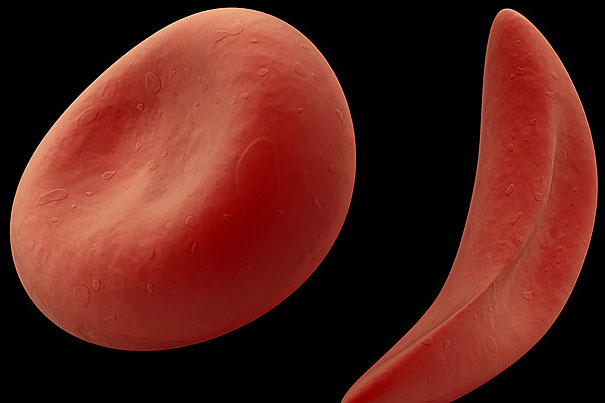Health
-
Lin Test
text with link. This is a quiz. Some text Name Name Quo modo autem philosophus loquitur? Tecum optime, deinde etiam cum mediocri amico. Invidiosum nomen est, infame, suspectum. Name Name…
-

Gender-affirming care is rare, study says
Fewer than 1 in 1,000 transgender youth receive hormones or puberty blockers

-

Nature offers novel approach to oral wound care
Slug’s sticky mucus inspiration behind adhesive hydrogel that can seal wounds in wet environment

-

Time for a rethink of colonoscopy guidelines?
Change informed by new findings would help specialists focus on those most at risk, researcher says

-

Should pharmacists be moral gatekeepers?
‘The problem is not opioids,’ says author of ‘Policing Patients’ — it’s overdose, pain
-

The deadly habit we can’t quite kick
Actions by tobacco companies worry researcher even amid ‘dramatic decrease’ in smoking among young Americans

-
Relief for stem cell transplant patients
In a study that seems to pivot on a paradox, scientists at Harvard-affiliated Dana-Farber Cancer Institute have used an immune system stimulant as an immune system suppressor to treat a common, often debilitating side effect of donor stem cell transplantation in cancer patients. The effect, in some cases, was profound.

-
Guiding lights
In a scientific first that could shed light on how signals travel in the brain and how learning alters neural pathways, scientists at Harvard have created genetically altered neurons that light up as they fire. The work may also lead to speedier drug development.

-
Rebuilding the brain’s circuitry
Harvard scientists have rebuilt genetically diseased circuitry in a section of the mouse hypothalamus, an area controlling obesity and energy balance, demonstrating that complex and intricately wired circuitry of the brain long considered incapable of cellular repair can be rewired with the right type of neuronal “replacement parts.”
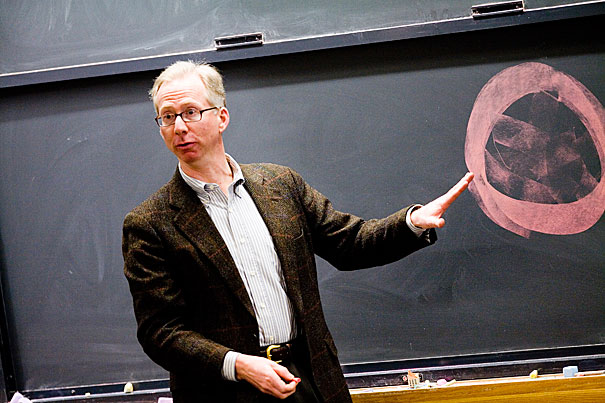
-
Alleviating radiation sickness
A combination of two drugs may alleviate radiation sickness in people who have been exposed to high levels of radiation, even when the therapy is given a day after the exposure occurred, according to a study led by scientists from Harvard-affiliated Dana-Farber Cancer Institute (DFCI) and Children’s Hospital Boston.
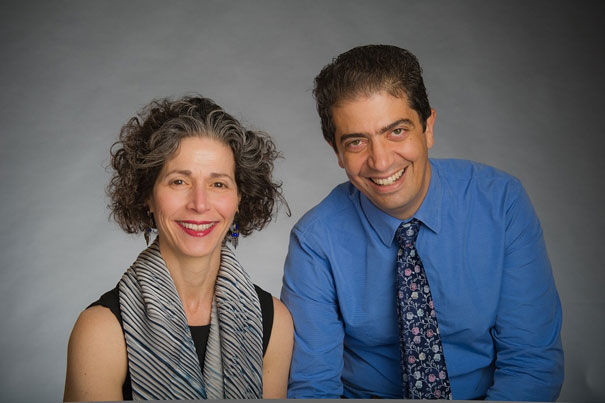
-
Canned soup linked to higher BPA levels
A new study from researchers at the Harvard School of Public Health has found that the volunteers who consumed a serving of canned soup each day for five days had a more than 1,000 percent increase in urinary bisphenol A (BPA) concentrations compared with the group who consumed fresh soup daily for five days. The study is one of the first to quantify BPA levels in humans after ingestion of canned foods.

-
Slowing ALS symptom progression
Harvard researchers find that treatment with dexpramipexole — a novel drug believed to prevent dysfunction of mitochondria, the subcellular structures that provide most of a cell’s energy — appears to slow symptom progression in the neurodegenerative disease amyotrophic lateral sclerosis (ALS).

-
Actually, the star’s a turkey
Visiting Professor Pamela Diggle took listeners into the botanical roots of Thanksgiving dinner, illustrating how nature’s everyday trials forced plants to come up with unusual — and delicious — ways to survive.

-
Tailored to fit
The dramatic diversity of columbine flowers can be explained by a simple change in cell shape. To match the pollinators’ probing tongues, the flowers’ cells in floral spurs elongate, driving rapid speciation.

-
Following the clues
Researchers at Harvard Medical School and Children’s Hospital Boston have retraced the evolution of an unusual bacterial infection as it spread among cystic fibrosis patients by sequencing scores of samples collected during the outbreak, since contained.
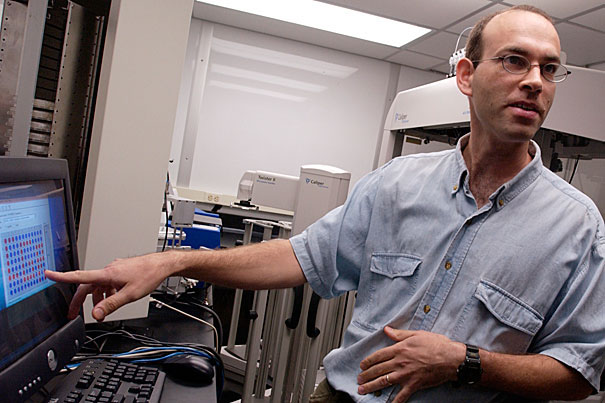
-
Impact of cutting co-pay on meds
Researchers from Harvard-affiliated Brigham and Women’s Hospital evaluated whether eliminating co-payments for specific medications following a heart attack would increase adherence and improve outcomes in patients.

-
Increasing risk for melanoma
A major international study has identified a novel gene mutation that appears to increase the risk of both inherited and sporadic cases of malignant melanoma, the most deadly form of skin cancer.
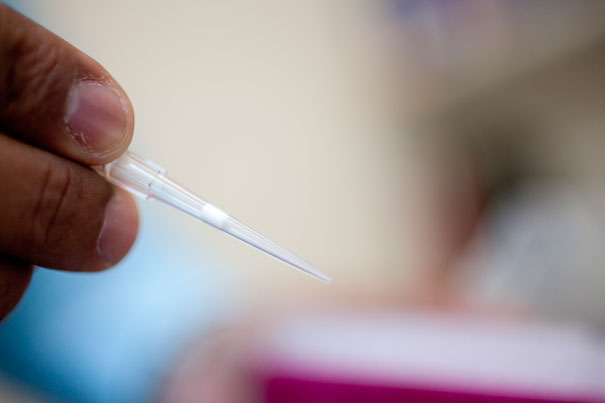
-
Cancer clues from another species
Researchers have decoded the genome of an unlikely ally in the fight against cancer and aging, the naked mole rat, to find clues on why it resists the disease and lives 10 times as long as ordinary mice.

-
Effective treatment of painkiller addiction
Individuals addicted to prescription painkillers are more likely to succeed in treatment with the aid of the medication buprenorphine-naloxone (Suboxone), report McLean Hospital and Harvard Medical School researchers.
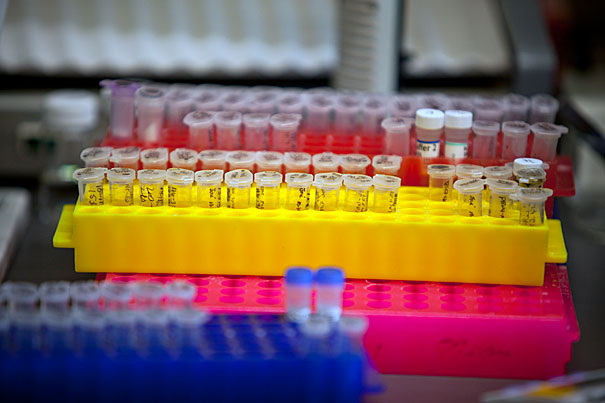
-
Why cooking counts
In a first-of-its-kind study, Harvard researchers have shown that cooked meat provides more energy than raw meat, a finding that challenges the current food labeling system and suggests humans are evolutionarily adapted to take advantage of the benefits of cooking.

-
Survival strategy of cancer cells
A new study led by a scientific team at Beth Israel Deaconess Medical Center and Harvard Medical School has uncovered another key mechanism that cancer cells use as part of their survival strategy — and once again it seems that they are using an enzyme called PKM2 to their advantage.
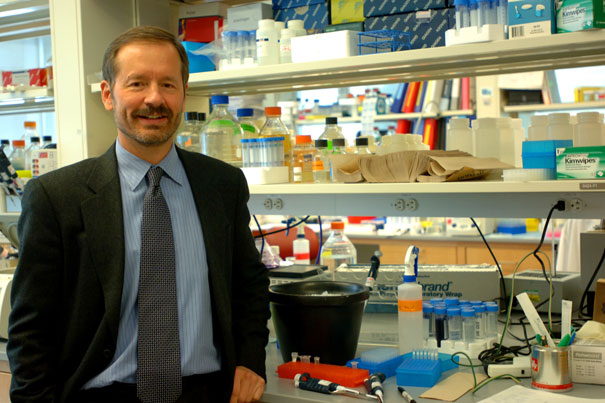
-
Mapping mollusks
Using genetic tools, researchers at Harvard and collaborating institutions have completed the most comprehensive evolutionary tree ever produced for mollusks. Described in the Nov. 2 issue of Nature, the work also serves as a proof-of-concept, demonstrating the power of genomic techniques to answer difficult evolutionary questions.

-
A better view of heart disease
In clinical settings, simple 2-D displays of human arteries are more effective than traditional 3-D rainbow models, according to Harvard researchers.
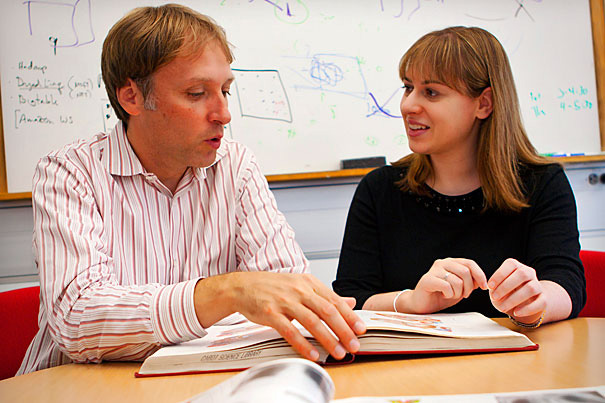
-
Understanding interference
In a discovery that might eventually lead to new biomedical treatments for disease, researchers from Harvard’s Department of Molecular and Cellular Biology have identified two types of RNA that are able to move between cells as part of a process called RNA-interference (RNAi).
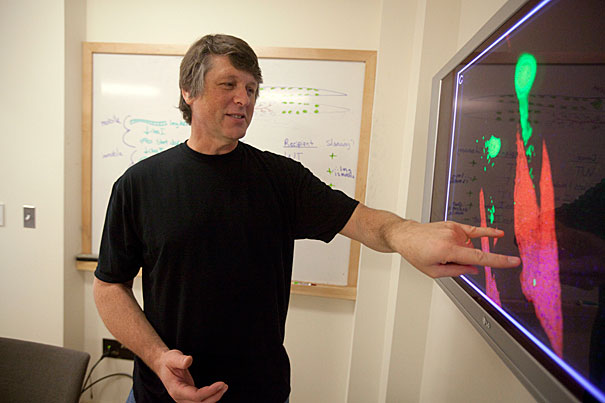
-
Affordable cancer treatments available
Report reveals that readily available and affordable cancer prevention, treatment, and pain relief interventions could decrease deaths and improve the lives of millions in developing countries.
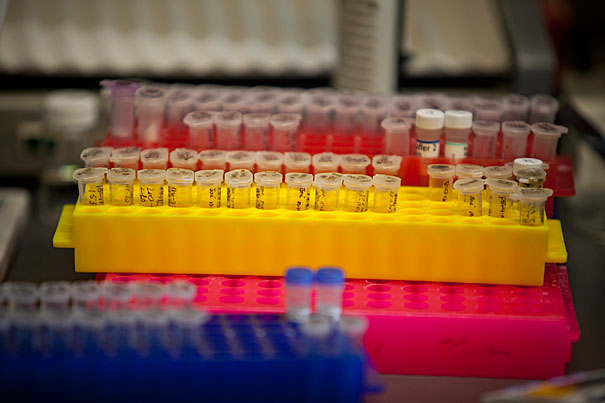
-
New way to explore how life, disease work
Researchers have built a map that shows how thousands of proteins in a fruit fly cell communicate with each other. This is the largest and most detailed protein interaction map of a multicellular organism, demonstrating how approximately one-third of the proteins cooperate to keep life going.

-
Breathing easier with lung regeneration
Harvard researchers have cloned stem cells from the airways of the human lung and have shown that these cells can form into the lung’s alveoli air sac tissue. Mouse models suggest that these same stem cells are deployed to regenerate lung tissue during acute infection, such as during influenza.
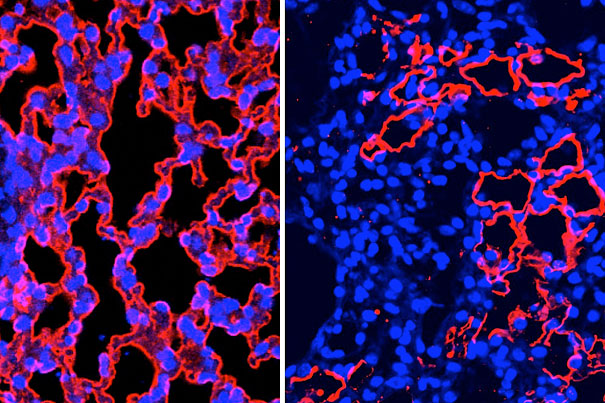
-
Nose to nose with mental illness
Miami Dolphins wide receiver Brandon Marshall talked to a Harvard audience about his struggles with mental illness in a forum at Emerson Hall Oct. 24.

-
Gestational BPA exposure growing concern
Exposure in the womb to bisphenol A (BPA) — a chemical used to make plastic containers and other consumer goods — is associated with behavior and emotional problems in young girls, according to a study led by researchers at Harvard School of Public Health.

-
Food reform to fight obesity
Panelists at a Harvard School of Public Health Forum Oct. 20 said that changing agriculture policy may be necessary to reform the nation’s diet, which is blamed for worsening current epidemics of obesity and diabetes.

-
A child’s memory in military time
Harvard specialists discussed research on memory development during a seminar aimed at helping military families talk to their children about deployments and homecomings.
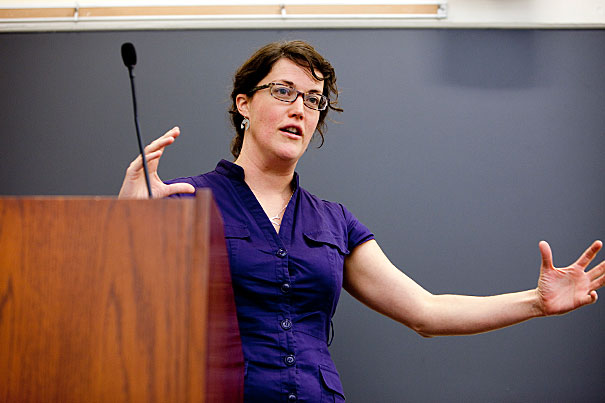
-
Colon cancer connection
Scientists at Harvard-afilliated Dana-Farber Cancer Institute and the Broad Institute have found strikingly high levels of a bacterium in colorectal cancers, a sign that it might contribute to the disease and potentially be a key to diagnosing, preventing, and treating it.

-
Initiative challenges drug crisis
Taking aim at the alarming slowdown in the development of new and lifesaving drugs, Harvard Medical School is launching the Initiative in Systems Pharmacology, a comprehensive strategy to transform drug discovery by convening biologists, chemists, pharmacologists, physicists, computer scientists, and clinicians to explore together how drugs work in complex systems.

-
Harvard surgeons perform hand transplant
Fourteen Harvard surgeons, supported by 36 anesthesiologists, radiologists, nurses, and other medical personnel at Harvard-affiliated Brigham and Women’s Hospital, worked for 12 hours to give a new pair of hands to a 65-year-old Revere man who lost both arms below the elbows and both legs below the knees as a result of a septic infection in 2002.
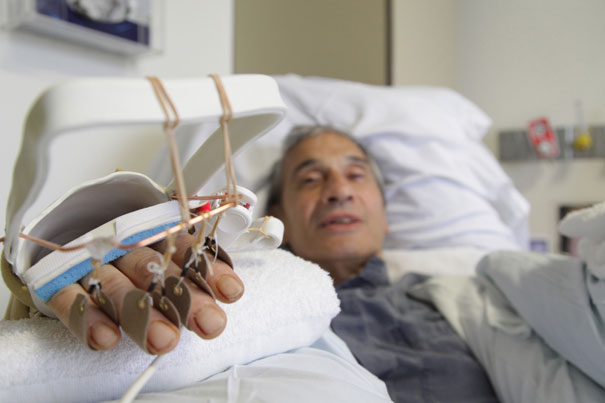
-
Gauging the effects of the BP spill
Research into the effects of last year’s massive BP oil spill in the Gulf of Mexico highlights the flexibility of the community of microbes living in the ocean’s depths.
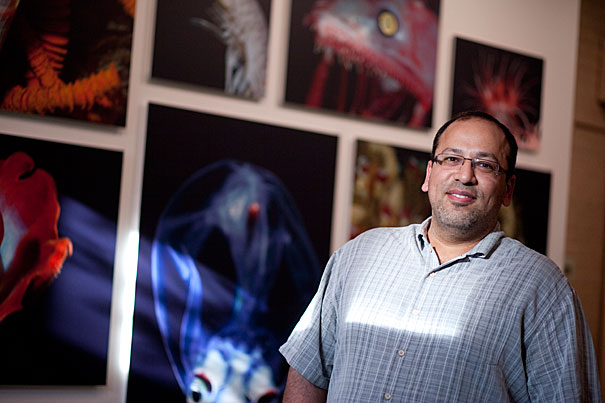
-
Dialing down sickle cell disease
Flipping a single molecular switch can reverse illness in an animal model of sickle cell disease, according to a study by Harvard researchers at Children’s Hospital Boston and Dana-Farber Cancer Institute.
